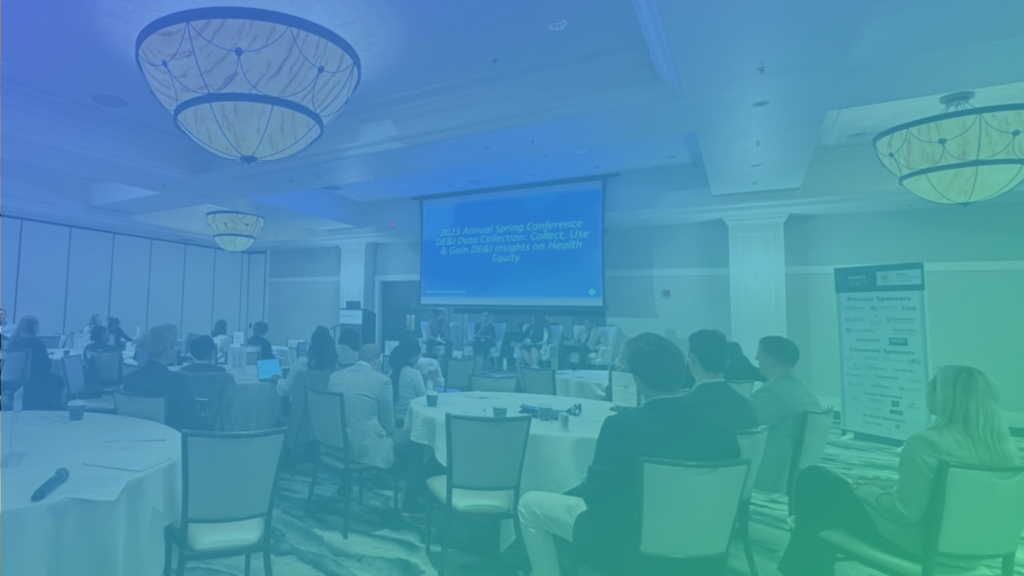Last week, I had the pleasure of attending the New England HIMSS Spring Conference outside of Boston, MA. Over 100 local healthcare leaders attended the conference to exchange thoughts about digital transformation, lessons they learned from their own experiences as a CIO, and the impact AI and other technologies are making now, and for the future. While there are many takeaways to share from my own experience, below are what I found to be the most impactful.
Recognizing health disparities and enacting change:
Throughout the conference, multiple speakers addressed the topic of health disparity and overall access to care. Alister Martin, CEO of A Healthier Democracy*, shared statistics of how many Americans lack access to the internet, making it close to impossible to engage with digital health programs. Painting a picture of the year 2021, when vaccines became available but could only be scheduled online. A patient walks into the emergency department with an unrelated issue, but expresses interest in getting vaccinated, only to be told that the appointment must be scheduled online. Unfortunately, they do not have access to the internet. Now what? Or in the year 2023 where a patient in a rural community can’t afford a visit to the emergency department but is experiencing pain that can be diagnosed via a telehealth appointment but doesn’t have access to a tablet or internet? These scenarios are all too common, even in a post-covid world.
Bret Anderson of the Chartis Group also shared how digitally enabled accessibility features are becoming table stakes for equity. While there were many examples, a few that stood out the most to me were activating Google Translate on a hospital’s website (free, and easy to do), creating a user guide to show patients how to use Text Telephone Devices (TTY) mode on a mobile device, and requiring digital tools that enable a toggle feature to quickly translate text to other languages.
Candra Syzmanski, AVP, Hospital at Home, UMass Memorial, shared the story of launching their own Hospital at Home program in 2021. Syzmanski shared UMMH’s challenges which include connectivity (1/3 of Worcester homes lack in-home high-speed internet), tech literacy, and diverse languages. Digital health programs, not just Hospital-at-Home, are powerful, but we must acknowledge that accessing them isn’t always easy.
*I’d also like to take a moment to plug here a note about the Affordable Connectivity Program, which helps close the divide in healthcare by providing funds to low-income households so they can pay for access to the internet, and effectively be able to access digital health programs. To learn more visit https://ahealthierdemocracy.org/
The importance of digital:
Joe Diver, CIO of Holyoke Medical Center, an independent community hospital in Western Massachusetts, began his session by stating that digital is changing how services are delivered and how organizations define value. He walked us through five lessons that he has learned in his role as a CIO and vast experience in the healthcare industry. One of the most impactful points I observed, is that while executives truly recognize the importance of digital, it’s not always prioritized. Diver shared the results of a question he posed to a group of executives at a hospital: What percentage of time do you spend on keeping the lights on, growing the organization, and innovation? The results were 85%, 15%, and 0% respectively.
While shocking, it’s not necessarily surprising to me, especially following our 2023 market report which showed us that 67% of surveyed executives have a “slow” approach related to their digital health roadmap. Anderson also supports this notion by sharing in his presentation that though 99% recognize the importance of digital health programs and digital transformation, only 25% are currently implementing them.
As a marketer who joined the world of healthcare in 2021, this conference was a wonderful opportunity to have meaningful conversations and engage with other leaders in my local area. I learned a ton and look forward to watching how the world of digital health evolves, specifically relating to health disparities.

